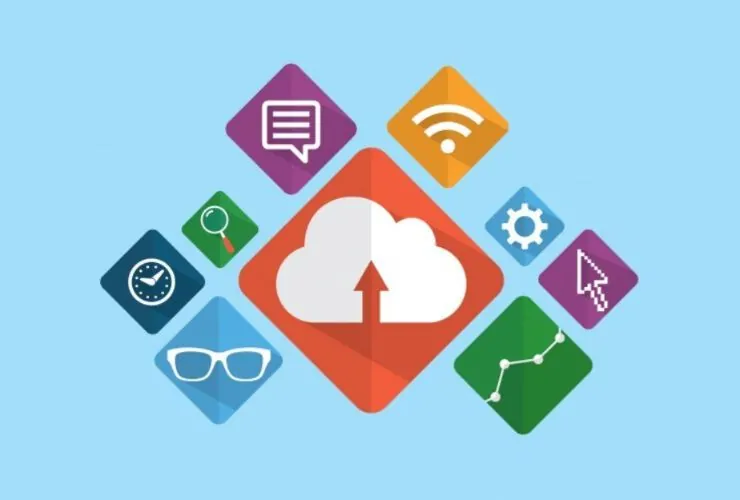In a world dominated by data, organizations must utilize accurate, accessible, and actionable insights in order to maintain a competitive advantage. Reports that are inconsistent, difficult to understand, or siloed across systems lead to bad decisions and missed opportunities.
This is where Crystal Reports can help. As one of the most trusted and widely adopted business reporting tools, Crystal Reports allows organizations to turn raw and unorganized data into clear, interactive, and professional reports. Whether you are a small to medium-sized business or a global enterprise, organizations across industries leverage the flexibility, scalability, and integration capabilities of Crystal Reports.
If your aim is to maximize the value of your data, streamline operations, and enable better business outcomes, then here are the top benefits of using Crystal Reports:
1. Custom Reporting
Every business has different goals and KPIs. With Crystal Reports, you can:
- Build reports to suit departments, roles, or business objectives.
- Add custom fields, formulas, and parameters to keep companies focusing on the exact data they need.
- Tailor layouts, formatting, and branding so reports fit within your corporate brand.
From finance to operations, Crystal Reports delivers departments and teams insights that are contextually relevant rather than lazy dashboards, making the reports even less valuable.
2. Effective Data Visualization
Working with raw numbers and spreadsheets can create a sense of overload, which is compounded when dealing with millions of records. Crystal Reports helps with this issue in the following manner:
- Transforms complicated datasets into visual dashboards.
- Includes sophisticated charts, graphs, and other interactive components that highlight patterns, trends, and anomalies.
- Provides stakeholders, executives, and non-technical users a clear understanding of insights quickly.
3. Easy Data Integration
Many companies are challenged with fragmented data in various software applications. Crystal Reports addresses this issue by:
- Connecting quickly with ERP’s, CRM’s, databases (SQL Server, Oracle, MySQL, PostgreSQL), spreadsheets, and cloud applications.
- Allowing you to combine all the data into a single cohesive report regardless of database relationships.
- Using both structured and unstructured data to provide a full view of your business.
This means your teams will spend significantly less time moving between platforms, and much more time reviewing merged insights.
4. Automated Reporting
Running reports manually can be time-consuming and also leads to mistakes. With Crystal Reports an organization can:
- Schedule an ongoing report to run automatically at defined time intervals.
- Set rule based triggers for a specific business event or threshold.
- Email reports directly to those that expect it in their email, portal or application dashboard, negating the need for someone to run the report.
This will save time and reduce mistakes while also speeding up the report process; gives you or your team members the time to develop a unique strategy for others based on reports or data and not simply run repeated processes.
5. Better Decision-Making
Data is only beneficial if it informs better business decisions. Crystal Reports does this by:
- Providing timely, accurate insights throughout the organization.
- Enabling decision-makers to quickly assess risk, opportunity, and performance shortfalls.
- Informing both operational and strategic documents.
Having timely reports allows organizations to react faster to challenges and seize opportunities before their competitors.
6. Enterprise Scalability
Reporting requirements are different as organizations grow. Crystal Reports is developed to support growth and change:
- From a few departmental reports to enterprise reporting systems.
- Identifying requirements for multiple teams, locations, division, and global hiring.
- Role-based access and security measures are included so data is governed and protected.
- With reporting systems built-in, growth is achieved without expensive infrastructure overhaul.
7. Cost-Efficient Reporting Solution
Crystal Reports is not just an effective reporting tool, it is also very cost-effective compared to most (if not all) enterprise BI solutions. With very little training, your organization can create their own reports and steward their reporting system effectively—limiting high dependency on IT and lowering total cost of ownership.
8. Regulatory and Compliance Support
Industries such as finance, healthcare, and manufacturing adhere to stringent compliance requirements. Crystal Reports:
- Ensures accuracy in audit trails, compliance reports, and financial statements.
- Provides transparency and consistency in reporting, which is extremely important for audits and regulatory reviews.
- Allows organizations to mitigate potential penalties and continue to show a strong compliance posture.
Conclusion
Overall, Crystal Reports continues to be one of the most powerful, customizable and scalable reporting solutions available today. From customized reporting and automation, to integration and enterprise scalability, Crystal Reports has everything modern organizations need to truly unlock the full value of data.
When you invest in Crystal Reports services- customization, consulting, automation and integration, you give your teams the tools they need to turn data into strategy, heighten collaboration, and have a true competitive advantage.
Turn Data Into Actionable Insights
At Empirical Edge, we help organizations implement powerful reporting systems that improve visibility, streamline decision-making, and drive growth. Partner with our experts to build scalable, secure, and customized reporting solutions tailored to your enterprise needs.
Frequently Asked Questions
Crystal Reports is a reporting tool that helps businesses generate structured, data-driven reports by connecting to multiple data sources and presenting information visually for better insights.
Key benefits include automation of report generation, improved decision-making through clear data visualization, customizable reports for departments, and integration with other applications.
Yes. It supports connections to various sources such as SQL Server, Oracle, Excel, and web services, enabling organizations to consolidate diverse data into comprehensive reports.
Crystal Reports allows businesses to schedule reports and distribute them automatically to recipients, improving efficiency and reducing manual workload.
Yes. Reports can be exported into formats like PDF, Excel, and Word, making sharing and archiving easier.









